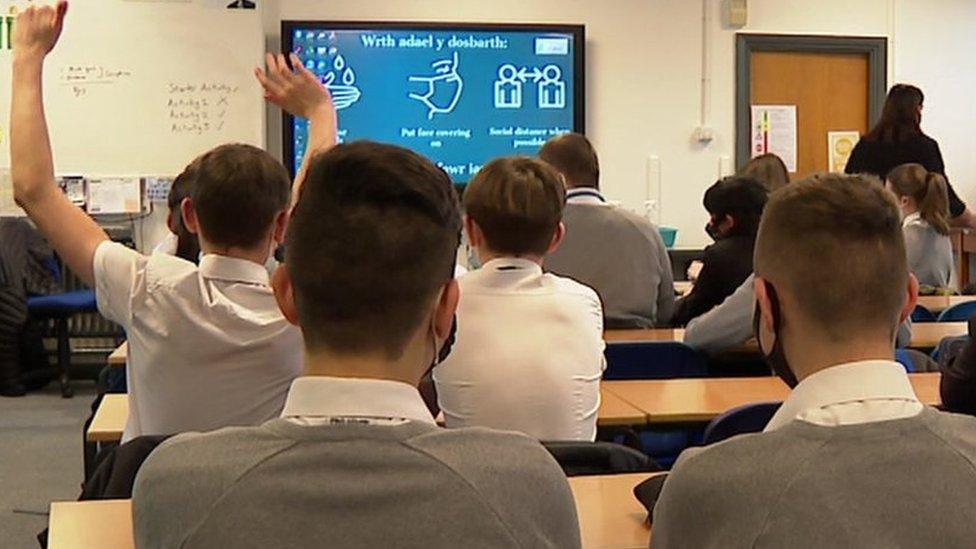Covid: Wales' schools face masks policy questioned by expert
- Published
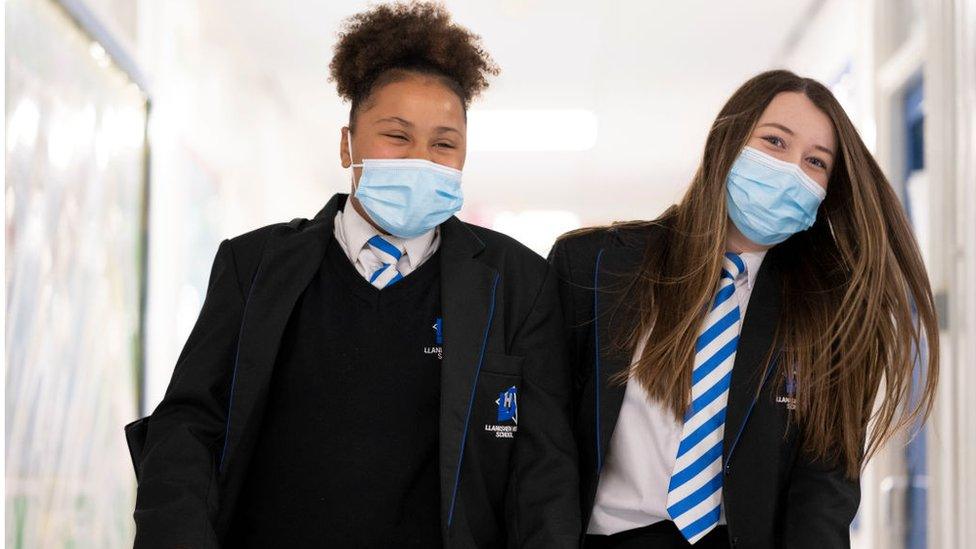
Wales' current rules for face masks in schools is set to change after the February half-term
Face mask rules in schools should not be left to councils and head teachers, a public health expert has said.
Wales' secondary school pupils are advised to wear face coverings in classes and corridors but after half-term, decisions will be made locally.
Epidemiologist Prof John Watkins said ministers should take more of a lead in making the decisions for children.
The Welsh government said schools and councils were supported by public health officials.
Secondary school pupils have been told to wear face coverings when inside school buildings, including in class.
Schools were instructed to adopt stricter measures in January to try to reduce transmission of the Omicron variant.
Education Minister Jeremy Miles told BBC Politics Wales: "We absolutely don't want to have these additional mitigations in place for a day longer than they're needed."
He added that the next Welsh government review of Covid measures on 10 February would confirm, if the evidence allowed, that decisions would once again be made by schools and councils - reverting to the situation in the autumn.
Prof Watkins of Cardiff University said the policy on face coverings should be a "central decision" based on scientific evidence.
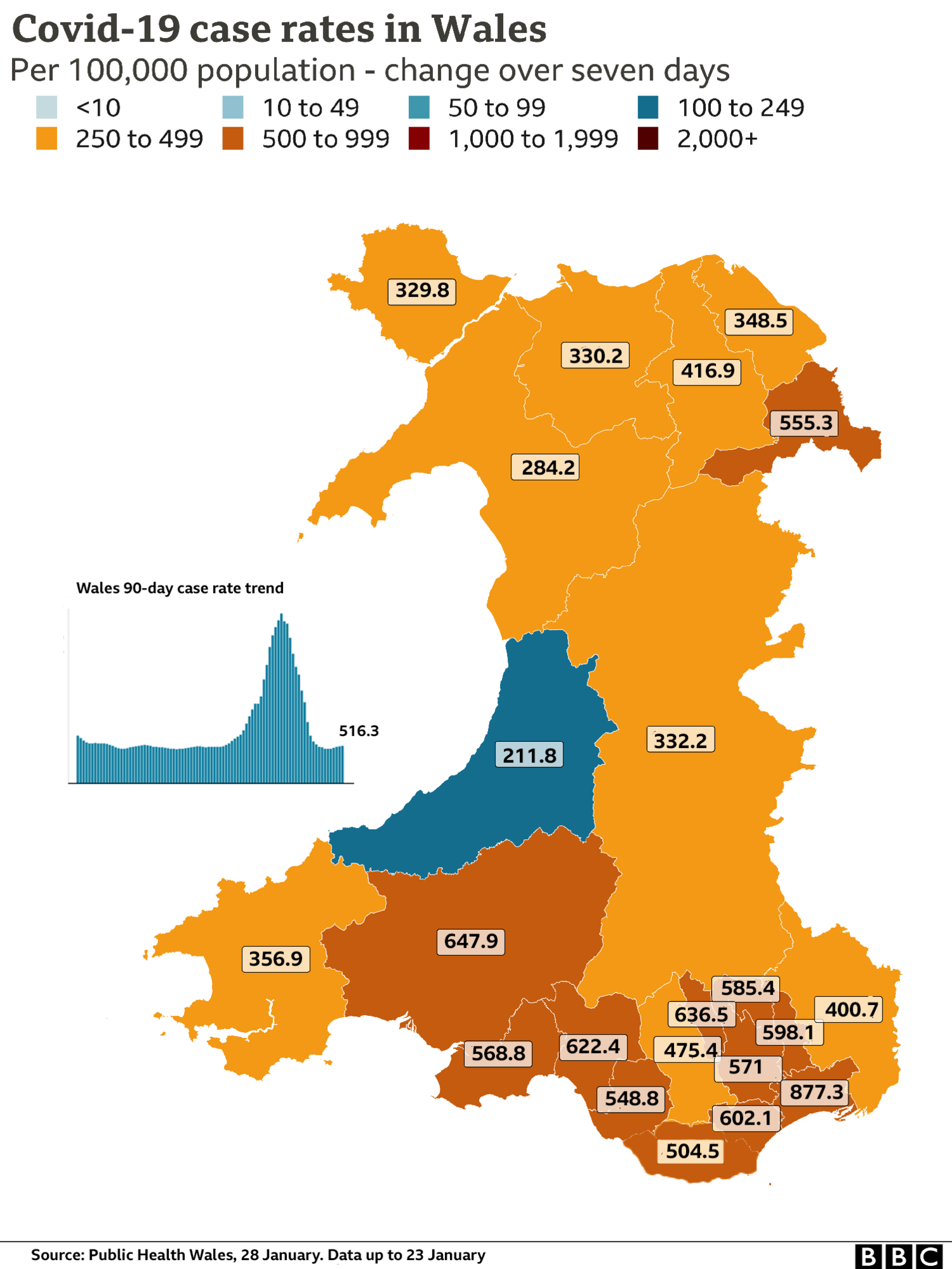

He warned the situation could arise where two schools in the same town "could have different policies developed by headmasters with a particular view".
He said it should not be left to "the idiosyncrasies" of schools and local authorities "who may not be in the same position to appraise the evidence either from an epidemiological point of view - how much disease is around in a particular area - or a scientific basis on the merits or otherwise of face masks".
He instead called for a universal policy from the Welsh government.
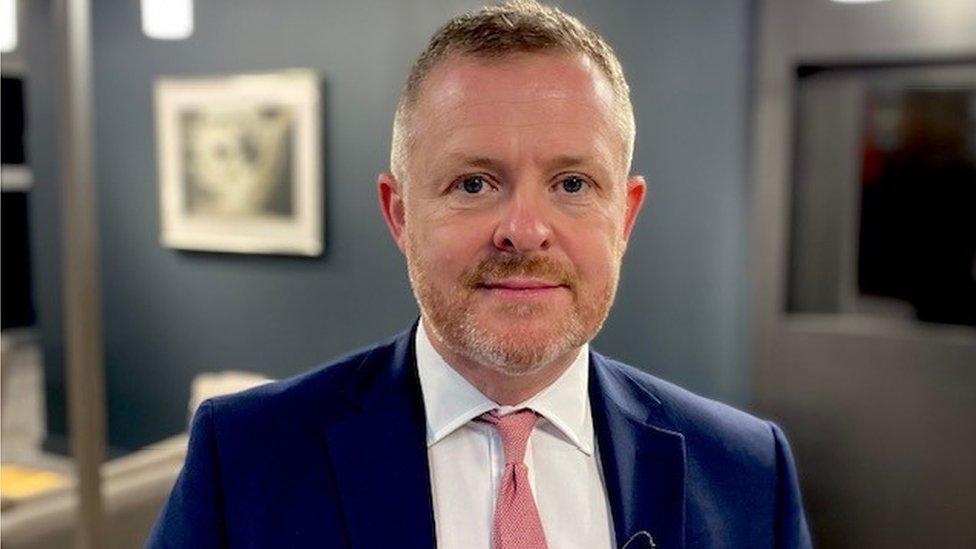
Education Minister Jeremy Miles says he does not want these measures in place "for a day longer than they're needed"
Mr Miles said: "There's national guidance which responds to local circumstances.
"Designing it with school leaders, who are experts in how schools run, is actually a positive."
In England, the UK government has said pupils no longer need to wear face coverings, but some schools say they should still be worn.
Masks are still required for all staff and older pupils in Scotland and Northern Ireland.
Prof Watkins said disruption to education over the past two years had been "pretty profound", adding: "The risks are really quite low but harms from the interventions we do are actually potentially great."
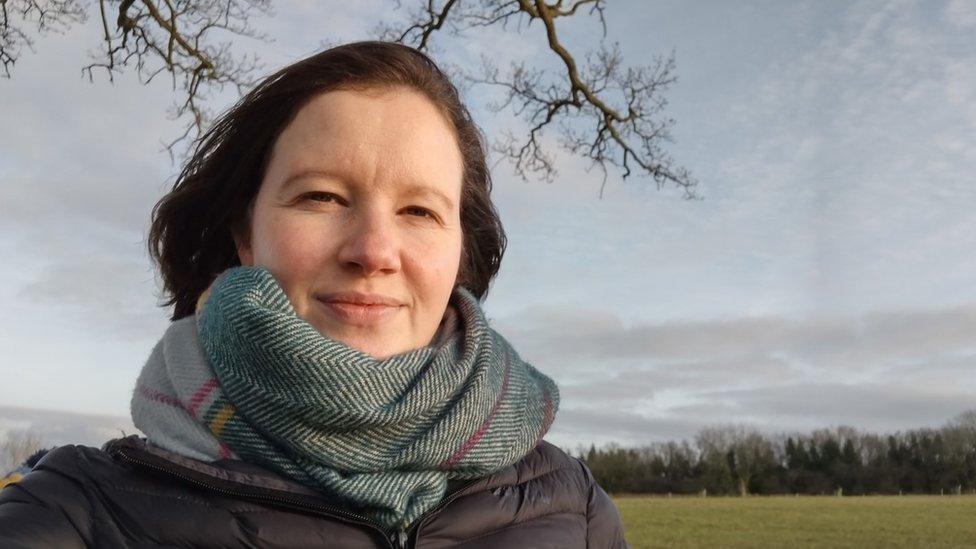
Dr Helen Wimalarathna of the University of Buckingham
Dr Helen Wimalarathna, an epidemiologist and lecturer in health sciences at the University of Buckingham, said she did see how removing them could be considered in some areas, such as schools, rather than a wholesale change as seen in England.
"I can see the logic for removing them in high schools but in public places where there are strangers and no automatic follow-up, they should be worn," she said.
"I feel very strongly facemasks should not have been removed in England," she said.
"In environments where you're close to strangers it makes sense to do your bit out of respect for each other and out of respect for science."
The Welsh government said the priority was for face-to-face learning to continue in the safest possible way and advice to wear masks was "one of a range of measures" to enable this.
A spokesman added: "The national framework enables schools to tailor interventions to reflect local risks and circumstances.
"Schools are supported by public health officials and local authorities to ensure measures are appropriate and based on evidence."


- Published23 February 2022
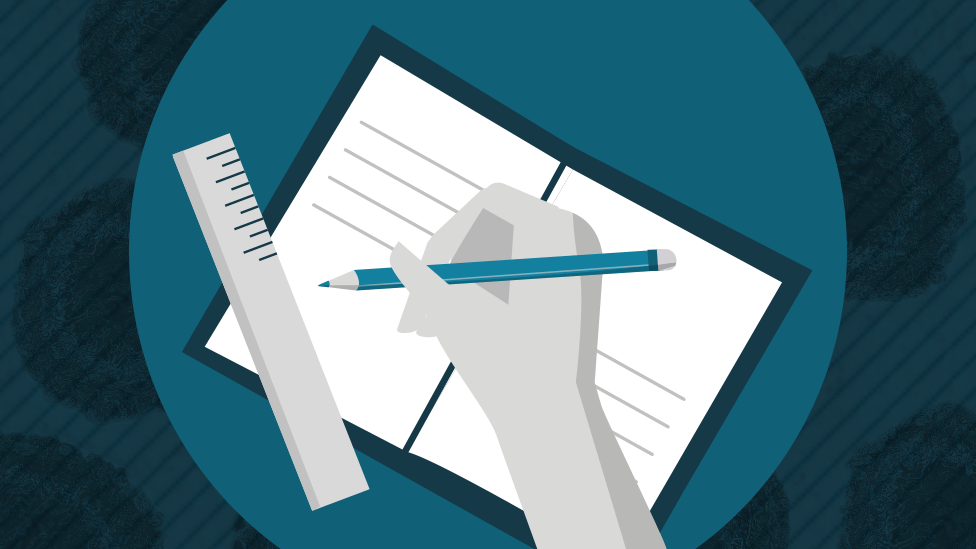
- Published11 January 2022
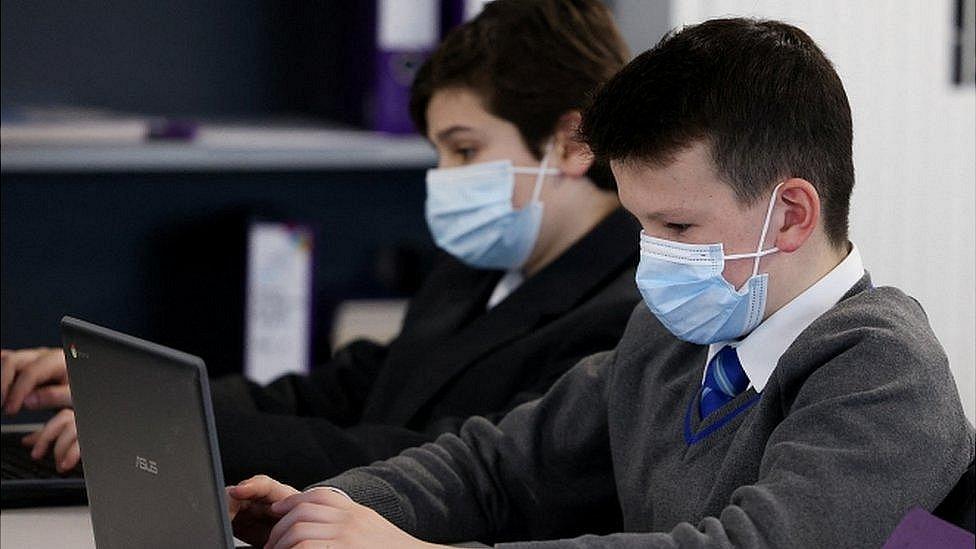
- Published10 January 2022
